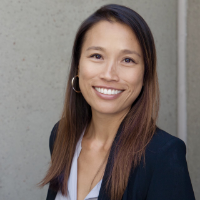Dr. Christabel Cheung Published in 'Journal of Adolescent and Young Adult Oncology'
December 13, 2021
Christabel Cheung, assistant professor, PhD, MSW, and colleagues have a new paper published in Journal of Adolescent and Young Adult Oncology that utilized an embodied research approach to elucidate a deeper and nuanced understanding of the expressed benefits and risks of engaging in cancer-related online interactions. Using Gale et al.'s Framework Method for qualitative, multidisciplinary health research and Thanem and Knights' embodied research methods for the social sciences, an investigative team of embodied researchers (AYA cancer patients turned researchers) conducted semi-structured in-depth interviews with AYA cancer patients (n = 10) diagnosed between ages 15 and 39 years. Findings impart evidence on AYAs' needs for Internet-based content at the time of cancer diagnosis, use of the Internet to fulfill cancer-related needs, perception of gaps in online cancer resources, and advice to other AYA cancer patients accessing Internet-based information and support. Emergent data revealed both themes of beneficial empowerment and harmful fear-inducing consequences. In our rapidly evolving context of post-pandemic Internet reliance, developers of online cancer content should prioritize and respond to the nuanced vulnerabilities of AYAs. Future research must include socioeconomically disadvantaged participants to better understand practical challenges and promote health equity.
Cheung, C.K., Norlander, M.G., Vest, A.N., Thomas, B.N. & Zebrack, B. J. (2021). “A thin line between helpful and harmful Internet usage: Embodied research on Internet experiences among adolescent and young adult cancer patients.” Journal of Adolescent and Young Adult Oncology. https://doi.org/10.1089/jayao.2021.0113